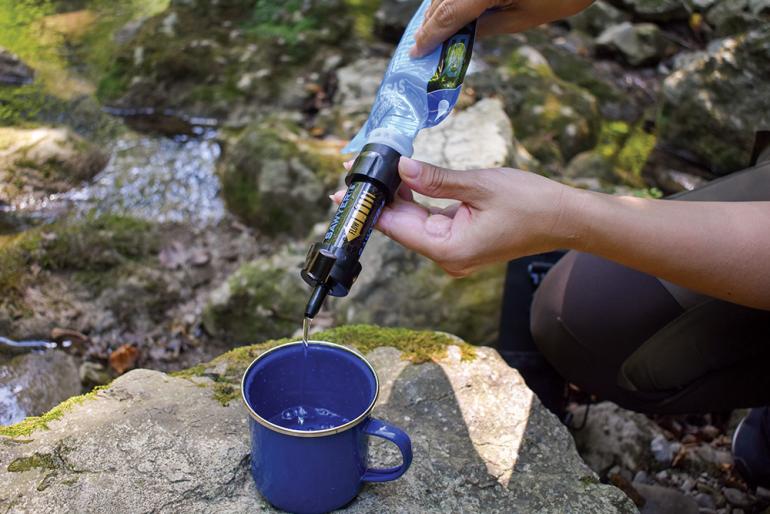Clean & Clear
Water-purification options.
Few things ruin the outdoor experience like intestinal parasites. Though the symptoms of Giardia often don’t set in for a while, when they do, you’ll wish to High Heaven you’d been more careful—and all your friends will, too. Remember, prevention is the best medicine—here’s a rundown of options to keep the water bugs at bay.
Boiling
Tried and true, boiling is the most reliable way to eliminate the nasty organisms that may be lurking in your water. A rapid boil for a few minutes kills it all, but does not filter out particulate, and can be inconvenient in a pinch.
Chemicals
Iodine comes in tinctures, crystals, and tablets, all of which work in the same general way. Adding iodine to water and allowing it to rest for the designated amount of time kills a wide variety of microorganisms, but also does not clean out particles. Iodine crystals are preferable for long trips as they can be refilled. Note: iodine allergies are relatively common.
Chlorine comes in either drops or tablets; treatments are comparable to iodine although some people prefer it to the taste of iodine. Chlorine kills the majority of aquatic organisms and takes roughly the same amount of time as iodine to do so. Similarly, it does not remove particulate.
UV Light
Certain frequencies of UV light are capable of killing microorganisms in a matter of seconds. The most famous portable UV-light source is the SteriPen, which has been proven successful in a variety of temperatures but should not be used in very cloudy water with particulate, as the light cannot penetrate effectively.
Filters
There are a wide variety of filtration methods, each with its own caveats. The type of filter depends a lot on the amount of water you need to purify and the kind of activity you are doing.
Membrane filters use thin sheets with precisely-sized pores and are capable of filtering out a variety of microorganisms and particulates. While they are more durable and relatively easy to keep clean, they can clog more easily than depth filters.
Depth filters force water through thick materials such as carbon or ceramic to trap particles as water flows through. Many depth filters are also capable of removing chemicals and heavy metals, but can be easily broken if dropped or crushed.












